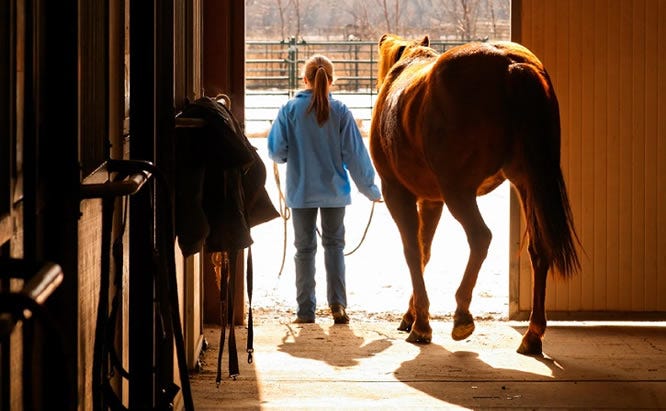As our beloved equine companions age, their nutritional needs change significantly. Understanding the vitamin needs in senior horses is crucial for maintaining their health and vitality. This guide aims to provide an in-depth exploration of the essential vitamins required to support the well-being of older horses.

Understanding the Importance of Vitamins
Vitamins play a vital role in a horse’s overall health. They are necessary for various bodily functions, including growth, immune support, and energy production. As horses age, their ability to absorb and utilize these nutrients may decline, making it even more critical to ensure they receive adequate vitamin intake.
Key Vitamins for Senior Horses
Vitamin A
Vitamin A is essential for maintaining healthy vision, skin, and mucous membranes. It also supports the immune system, helping older horses fight off infections. As horses age, their ability to convert beta-carotene to vitamin A decreases, making direct supplementation important.
Vitamin D
Vitamin D is crucial for calcium absorption, which is necessary for maintaining strong bones and teeth. Older horses may spend less time outdoors, reducing their natural vitamin D synthesis from sunlight exposure, thus requiring dietary supplementation.
Vitamin E
Vitamin E is a powerful antioxidant that protects cells from damage. It supports muscle health and immune function, both of which are vital for senior horses. Adequate intake can help prevent muscle degeneration and improve overall vitality.
Common Vitamin Deficiencies in Senior Horses
Senior horses are prone to deficiencies due to decreased absorption efficiency and changes in dietary habits. Common deficiencies include vitamins A, D, and E. Recognizing the signs of these deficiencies early can prevent health issues and improve your horse’s quality of life.
Signs of Vitamin Deficiencies
Poor Coat Condition
A dull, brittle coat can indicate a lack of essential vitamins. Ensuring your horse receives adequate levels of vitamins A and E can help maintain a healthy, shiny coat.
Weakened Immune System
Frequent infections or slow recovery from illness can be signs of an impaired immune system due to vitamin deficiencies. Vitamin A and E are particularly important for immune support.
Bone Weakness
Vitamin D deficiency can lead to weakened bones and increased susceptibility to fractures. Ensuring proper supplementation can help maintain bone density and strength.
Formulating a Balanced Diet
A balanced diet tailored to the specific needs of senior horses is essential for preventing vitamin deficiencies. Consultation with a veterinarian or equine nutritionist can help create a diet plan that includes necessary supplements.
Supplementation Options
Commercial Supplements
There are numerous commercial supplements available designed specifically for senior horses. These supplements are formulated to provide the right balance of vitamins and minerals to support aging equines.
Natural Sources
Incorporating natural sources of vitamins, such as carrots for vitamin A and sunlight exposure for vitamin D, can complement commercial supplements and provide a holistic approach to nutrition.
Monitoring and Adjusting Diets
Regular monitoring of your horse’s health and dietary intake is crucial. Adjustments may be necessary based on changes in health status, activity level, and environmental conditions.
Consulting Professionals
Working with veterinarians and equine nutritionists ensures that your horse’s dietary needs are met. They can provide guidance on appropriate supplementation and diet adjustments.

FAQs
What are the signs of vitamin deficiencies in senior horses?
Common signs include a dull coat, weakened immune system, and bone weakness. Consulting a vet can provide a definitive diagnosis.
How can I ensure my senior horse gets enough vitamins?
A balanced diet with commercial supplements and natural sources, along with regular check-ups, can help maintain adequate vitamin levels.
Are natural sources of vitamins effective for senior horses?
Yes, natural sources can complement commercial supplements. However, it’s important to ensure they are part of a balanced diet that meets all nutritional needs.
For more detailed guidance on caring for senior horses, you might find this external resource useful. Additionally, explore our in-depth senior horse diet guide for more insights on maintaining a healthy diet for aging equines.
This article contains affiliate links. We may earn a commission at no extra cost to you.
